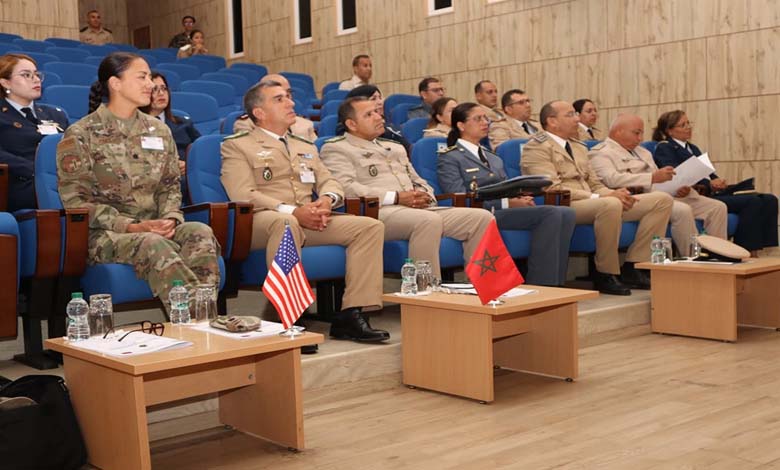Advanced military cooperation between Washington and Rabat lays the foundation for a strategic alliance

Morocco’s Minister Delegate in charge of National Defense Administration, Abdellatif Loudiyi, met on Monday in Rabat with the Commander of the United States Africa Command (AFRICOM), General Dagvin Anderson, to discuss strengthening military cooperation and promoting defense industry development in Morocco. This meeting comes at a time when U.S.-Moroccan relations are experiencing one of their strongest phases, marked by close collaboration across various fields, including defense.
-
Royal Attention Elevates Morocco’s Military to an Advanced Global Ranking
-
Rescue of Members of the Qatari Royal Family from a Bombing in Pakistan
According to a statement issued by Morocco’s Royal Armed Forces, following General Anderson’s official visit to the Kingdom, both parties reaffirmed their mutual commitment to strengthening the strategic partnership between the two nations, embodied in the 2020–2030 Defense Cooperation Roadmap signed in Rabat in October 2020. The statement emphasized the importance of expanding cooperation into new areas and encouraging the emergence of a Moroccan defense industry. Both officials expressed their satisfaction with the strength of bilateral ties and the high level of military cooperation achieved between Morocco and the United States.
On October 2, 2020, Washington and Rabat signed a ten-year defense cooperation agreement during the official visit of former U.S. Secretary of Defense Mark Esper to Morocco. Since then, military relations between the two countries have deepened, with numerous arms deals and joint participation in major military exercises such as the renowned “African Lion,” the largest on the African continent.
-
A U.S. report highlights close military cooperation with Morocco
-
S Approval Paves the Way for Morocco to Acquire F-35 Jets
Morocco stands out as the only Arab and African country to have taken part in the “Unitas” naval exercises held on the U.S. East Coast—an illustration of Washington’s determination to enhance the Royal Armed Forces’ defensive capabilities. This cooperation reflects America’s recognition of Morocco’s pivotal role in countering security threats in a highly sensitive region.
The military partnership between Rabat and Washington now goes beyond conventional cooperation to reach the level of a strategic alliance. The United States remains Morocco’s primary supplier of military equipment and technology. Recent contracts have included advanced defense systems such as “Stinger” missiles and “HIMARS” rocket launchers, significantly contributing to the modernization and strengthening of Morocco’s military capabilities.
-
Morocco Enhances Military Arsenal with American Armored Vehicles
-
Morocco Strengthens Its Military Industry with Various Types of Drones
Since 2004, Morocco has held the status of a Major Non-NATO Ally, granting it priority access to defense cooperation and coordination with the United States. This designation underscores Washington’s trust in Morocco as a reliable and strategic partner.
More recently, the U.S. government included Morocco among the countries authorized to manufacture components and structures for F-16 fighter jets, according to an official document published in the Federal Register. This move reflects growing confidence in the Kingdom’s industrial capabilities and its emergence as a rising defense manufacturer. It also represents a major step toward Morocco’s ambition to achieve self-sufficiency in arms production and to join the ranks of nations capable of developing their own defense industries.
-
Morocco enhances its military arsenal in the face of security challenges
-
The ‘African Lion’ in Morocco: Training against weapons of mass destruction
At the same time, Morocco plays a key role in counterterrorism efforts in the Sahel and Sahara regions. It actively participates in initiatives such as the “Trans-Saharan Counterterrorism Partnership” and maintains close cooperation with U.S. intelligence and security agencies in border security and information exchange.
Seen as a cornerstone of stability in North Africa, Morocco is considered an indispensable partner in advancing U.S. strategic objectives in the region, including maritime security, counterterrorism, and regional stability. This advanced military cooperation between Rabat and Washington thus stands as a model of enduring and balanced partnership dedicated to promoting peace and security in the region.












